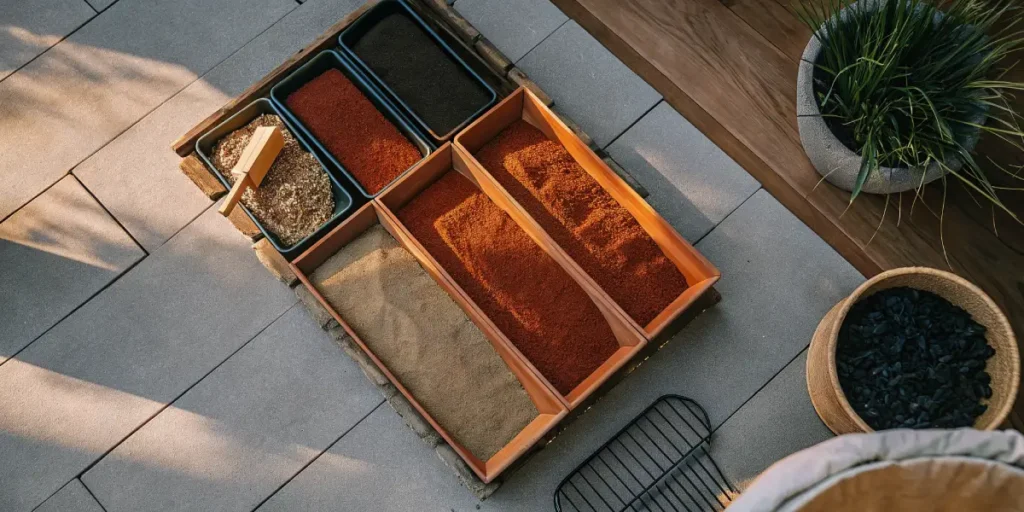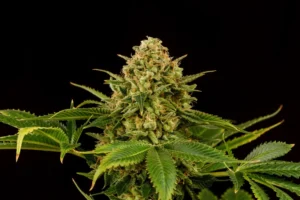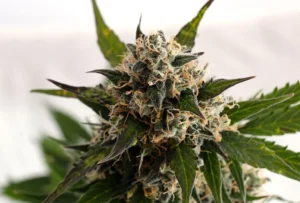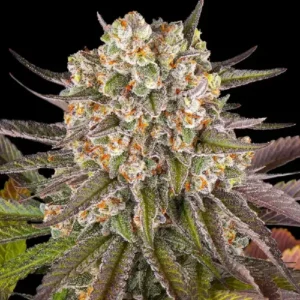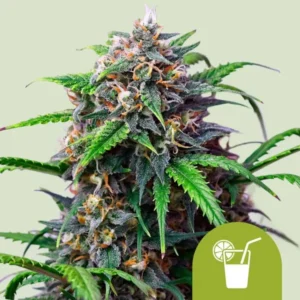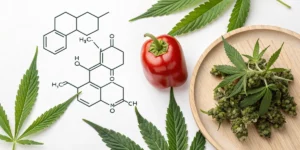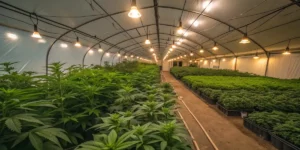Growing autoflowers is a rewarding hobby. These resilient plants can thrive in various conditions, but the right soil mix for autoflowers can make a big difference. A good soil mix balances water retention and drainage, ensuring your plants get the nutrients they need without drowning.
You’ll want to aim for a light and airy texture. This allows roots to spread easily, promoting healthier growth. A well-aerated soil mix for autoflowers ensures that oxygen reaches the roots, which is crucial for robust plant development.
Recommended Strains
Monkey Grease Strain
|
|
THC | 20% - 21% (Medium) |
|
|
Lineage | Monkey Grease x White Widow |
|
|
Type | Feminized |
|
|
Height | 8.2 ft | 2.5 m |
|
|
Yield | High |
|
|
Yield Indoor | 1.97 oz/ft² | 600 g/m² |
|
|
Yield Outdoor | 26.46 oz/plant | 750 g/plant |
|
|
Flowering Time | 7 - 8 weeks |
|
|
Phenotype | 50% Indica / 50% Sativa |
|
|
Effects | Relaxed |
|
|
Flavors | Sweet, Spicy |
Kickass Auto
|
|
THC | 11% - 13% (Low) |
|
|
Lineage | Skunk x Ruderalis |
|
|
Type | Autoflowering |
|
|
Height | 8.2 ft | 2.5 m |
|
|
Yield | Medium |
|
|
Yield Indoor | 1.31 oz/ft² | 400 g/m² |
|
|
Yield Outdoor | 7.05 oz/plant | 200 g/plant |
|
|
Life Cycle | 8 - 9 weeks |
|
|
Phenotype | 70% Indica / 30% Sativa |
|
|
Effects | Relaxed |
|
|
Flavors | Fruity, Sweet |
Let’s talk about organic soil blend for autoflowering plants. Organic materials like compost, peat moss, and perlite are popular choices. These components work together to create an environment where plants can thrive and absorb nutrients effectively. Adding worm castings is another great way to boost soil fertility naturally.
Creating the Best Soil Mix for Autoflower Cannabis
To create the best soil mix for autoflower cannabis, consider using a combination of ingredients that provide both nutrition and structure. A typical mix might include 40% peat moss, 30% compost, 20% perlite, and 10% worm castings. This combination offers a balanced environment for your plants.
Each component serves a purpose. Peat moss retains moisture, compost adds nutrients, perlite improves drainage, and worm castings enrich the soil. Adjust these ratios based on your local climate and specific plant needs. Every grower must find their sweet spot to achieve the best results.
Experimentation plays a key role in finding the best soil mix for autoflower cannabis. Factors such as temperature, humidity, and light conditions can influence the effectiveness of your soil mix. By tweaking the components and ratios, you can create a customized environment that caters to the specific demands of your autoflower strains.
Moreover, the inclusion of organic fertilizers and soil enhancers can further elevate the quality of your soil mix for autoflowers. Products like bat guano or kelp meal introduce additional nutrients and trace elements, fostering vigorous growth and enhancing the overall health of your plants. Regular monitoring and adjustments will guide you to the ideal soil formulation.
Recommended Potting Soil for Autoflowers
When it comes to recommended potting soil for autoflowers, quality matters. Look for a mix that includes organic matter and provides proper drainage. Many growers prefer to buy pre-mixed soils to ensure consistency. However, creating your own mix allows for customization based on your growing conditions and strain preferences.
An excellent choice is the “White Widow Autoflower” from Global Green Genetics. This strain thrives in a nutrient-rich soil for autoflower growth. Pairing it with a well-balanced soil mix will enhance its potential and yield.
Choosing the right potting soil can significantly influence the success of your autoflower cultivation. A recommended potting soil for autoflowers should have a balanced pH level and be free from harmful chemicals or pathogens. Opting for organic options ensures that your plants receive a steady supply of essential nutrients without the risk of chemical burn.
For growers who prefer to personalize their soil mix, incorporating additional components such as mycorrhizal fungi or beneficial microbes can enhance nutrient uptake and bolster plant resilience. These biological amendments create a symbiotic relationship with the roots, optimizing the plant’s ability to absorb water and nutrients efficiently.
Homemade Soil Recipe for Autoflower Cannabis
Crafting a homemade soil recipe for autoflower cannabis can be both fun and rewarding. Start with a base of organic potting soil, then add amendments like coco coir, perlite, and bat guano. Each ingredient plays a role in supporting plant health and growth.
Coco coir is an excellent addition for moisture retention. It’s made from coconut husks and provides a lightweight, fibrous texture. Perlite, a volcanic glass, improves aeration and drainage. Bat guano, rich in nutrients, boosts soil fertility naturally.
As you create your homemade soil recipe for autoflower cannabis, consider incorporating additional organic amendments such as biochar or azomite. Biochar helps improve soil structure, increases water retention, and enhances microbial activity, creating a thriving environment for root development.
Azomite, a natural mineral product, supplies a broad spectrum of micronutrients, promoting robust plant growth and improving overall health. Keeping a detailed log of your soil experiments can provide valuable insights, allowing you to refine your recipe for optimal plant performance season after season.
Nutrient-Rich Soil for Autoflower Growth
Nutrient-rich soil for autoflower growth is crucial for achieving bountiful harvests. Autoflowers have a shorter lifecycle than photoperiod strains, meaning they need access to nutrients quickly. Start with a fertile base and supplement as necessary.
Consider using a slow-release organic fertilizer to ensure a steady supply of nutrients. Products like bone meal, blood meal, and fish emulsion can be mixed into your soil before planting. These additions help sustain growth throughout the plant’s life cycle.
Creating a nutrient-rich soil for autoflower growth involves understanding the specific nutritional needs of your plants. Balancing primary nutrients like nitrogen, phosphorus, and potassium with essential micronutrients is vital to sustaining vigorous growth and maximizing yield.
Supplementing your soil mix with liquid organic fertilizers during critical growth phases can ensure your plants receive a consistent nutrient supply. Regular soil testing helps you identify any deficiencies, enabling timely adjustments to maintain the optimal nutrient balance throughout the growth cycle.
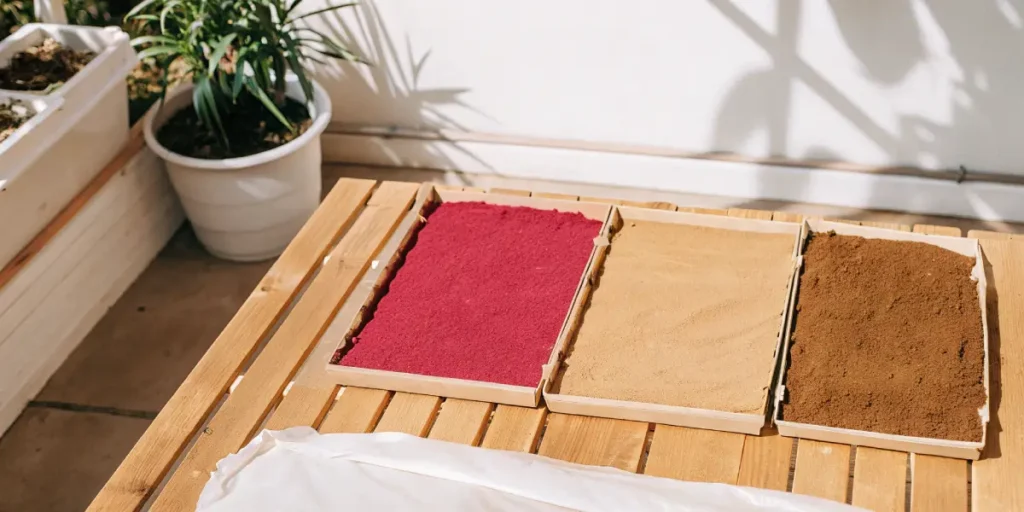
Achieving Balance in Soil Mixes
Achieving balance in your soil mix is key. Too much of one element can lead to deficiencies or excesses, impacting plant health. Regularly inspect your plants for signs of nutrient imbalance, such as yellowing leaves or stunted growth.
The “Northern Lights Autoflower” from Global Green Genetics is a forgiving strain for those experimenting with soil mixes. Its robust nature makes it a favorite among both novice and experienced growers. Providing a well-balanced soil mix enhances its natural resilience.
Understanding the characteristics of your soil ingredients is essential in achieving balance in soil mixes. Every component, from organic matter to aeration agents, plays a role in creating a thriving environment. By carefully measuring and adjusting these elements, you can craft a soil mix for autoflowers that fosters optimal growth conditions.
Environmental factors like temperature and humidity also influence soil performance. Regular monitoring and adjustments, such as modifying watering schedules or altering soil composition, ensure that your plants remain healthy and productive, regardless of external conditions. Achieving harmony in your soil mix can lead to a successful and fruitful harvest.
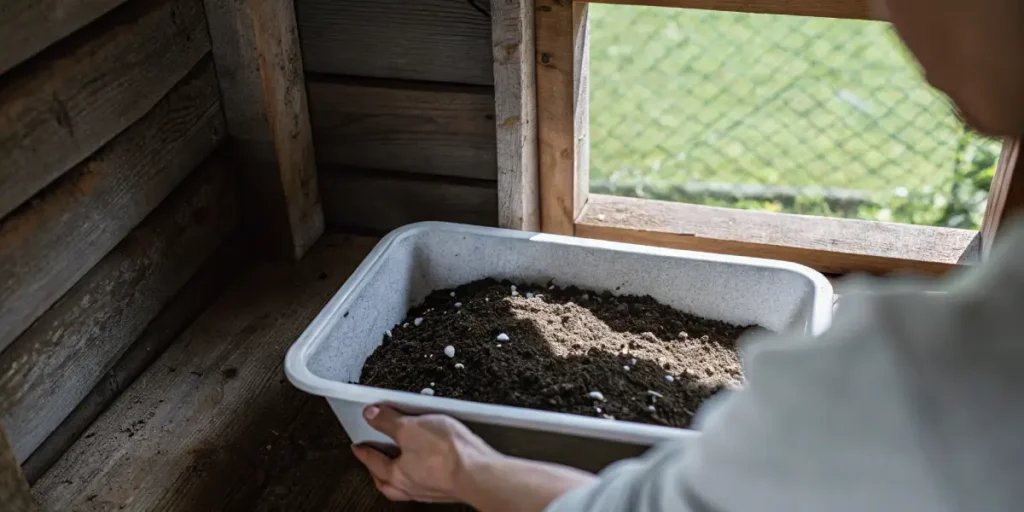
FAQs
What is the best soil mix for autoflowers?
The best soil mix for autoflowers typically includes a combination of peat moss, compost, perlite, and worm castings. This blend provides a balance of moisture retention, nutrient supply, and drainage. Adjust the ratios based on your local environment and specific plant needs for optimal growth.
For instance, the “Blueberry Autoflower” from Global Green Genetics thrives in a well-draining, nutrient-rich mix. This strain benefits from organic amendments, which enhance its flavor and potency. Tailor your soil mix to accommodate the unique characteristics of your chosen strain.
When crafting the best soil mix for autoflowers, it’s crucial to take into account the specific requirements of your chosen strain. Some varieties may have unique needs in terms of nutrient levels or pH balance, making it important to tailor your mix accordingly.
Conducting research on your selected strains and consulting with other growers can provide valuable insights into the ideal soil composition. As you fine-tune your soil mix, remember that observation and adaptability are key components of successful cultivation, ensuring your autoflowers reach their full potential.
How do I make a homemade soil recipe for autoflower cannabis?
To make a homemade soil recipe for autoflower cannabis, start with a base of organic potting soil. Incorporate amendments like coco coir, perlite, and worm castings. These ingredients improve moisture retention, aeration, and nutrient content, creating an ideal environment for your plants.
Mix these components in a large container, adjusting quantities based on your climate and plant requirements. Test different combinations and observe how your autoflowers react. Keeping records of your results will help you refine your recipe over time.
Creating a homemade soil recipe for autoflower cannabis allows you to customize your growing medium to suit specific environmental conditions and plant needs. With each growing cycle, you gain valuable experience and knowledge, enabling you to fine-tune your recipe for better results.
Engaging with online gardening communities or local growing clubs can also provide useful tips and feedback, helping you perfect your homemade soil mix. Sharing experiences and learning from others can accelerate your learning curve and lead to more successful and rewarding growing seasons.
Can I use regular potting soil for autoflowers?
Regular potting soil can be used for autoflowers, but it may require amendments to enhance its suitability. Many potting soils lack the specific nutrient profile and structure needed for optimal cannabis growth. Adding perlite, compost, and organic fertilizers can improve its performance.
Choose a potting soil that is free of synthetic fertilizers and pesticides. Organic options are preferable, as they provide a natural foundation. Enhance the soil with additional amendments to create a more hospitable environment for your autoflowers.
While regular potting soil may serve as a starting point, customizing it to create a soil mix for autoflowers can significantly improve plant health and yield. By supplementing with organic materials like coco coir or vermiculite, you can enhance the soil’s moisture retention and aeration properties.
Additionally, incorporating organic soil blend for autoflowering plants can provide essential nutrients that regular potting soil might lack. This ensures that your autoflowers have access to the resources they need for vigorous growth and abundant flowering, leading to a successful cultivation journey.
How often should I change the soil for autoflowers?
Changing the soil for autoflowers is not always necessary unless you notice issues like nutrient deficiencies or poor drainage. Autoflowers generally have a short lifecycle, so it’s important to start with a well-prepared soil mix. Regularly assess your plants’ health and make adjustments as needed.
If you choose to reuse soil, amend it with fresh compost and organic nutrients to replenish lost fertility. Consider rotating crops or using cover crops to maintain soil health between growing cycles. A little maintenance can go a long way in sustaining soil quality.
Monitoring your soil’s condition and plant health is vital in determining whether a change is needed. If your plants show signs of stress or nutrient deficiency despite optimal care, it may be time to refresh your soil mix for autoflowers. Regularly testing soil pH and nutrient levels can help you make informed decisions.
Incorporating crop rotation or cover crops can maintain soil vitality over time, reducing the need for frequent soil changes. These practices improve soil structure and fertility, supporting healthy plant growth and ensuring that your autoflowers continue to thrive with each growing cycle.
What is a nutrient-rich soil for autoflower growth?
Nutrient-rich soil for autoflower growth contains a balanced mix of essential elements like nitrogen, phosphorus, and potassium. Organic amendments such as bone meal, blood meal, and fish emulsion can be added to enhance nutrient availability. This ensures your plants have a steady supply of vital nutrients.
Monitor your plants for signs of nutrient imbalances, such as leaf discoloration or slow growth. Adjust your soil mix and feeding schedule accordingly. A proactive approach to soil management will help your autoflowers reach their full potential.
Crafting nutrient-rich soil for autoflower growth involves more than just adding fertilizers. The inclusion of beneficial microbes and mycorrhizal fungi can significantly enhance nutrient uptake and plant health. These organisms create a dynamic ecosystem within the soil, facilitating efficient nutrient exchange.
Regularly amending your soil with organic matter, such as compost or leaf mold, can also boost its nutrient content. These materials break down over time, slowly releasing essential nutrients while improving soil structure and moisture retention, creating an optimal environment for your autoflowers to flourish.

